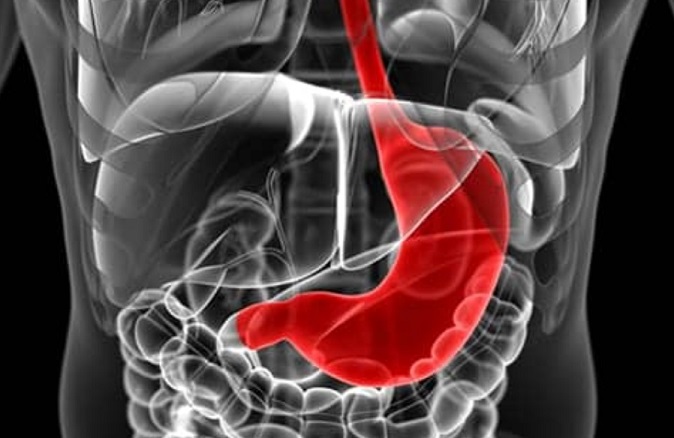COVID-19 and H Pylori Co-Infection Triggers Over 1100 Gene Disruptions and Severe Stomach Damage!
Nikhil Prasad Fact checked by:Thailand Medical News Team Jun 21, 2025 7 months, 3 weeks, 2 days, 2 hours, 24 minutes ago
Thailand Medical News: New Study Warns of Dangerous Gastric Consequences in Post-COVID Era
In a major scientific development, researchers have found that co-infection with SARS-CoV-2 and the common stomach bacterium Helicobacter pylori (H. pylori) can severely damage the stomach by disrupting over 1100 genes and triggering widespread inflammation and tissue deterioration. The groundbreaking study, conducted by an international team of scientists, raises urgent concerns about long-term stomach health in individuals who have been exposed to COVID-19—especially those already harboring the H. pylori bacterium.
 COVID-19 and H Pylori Co-Infection Triggers Over 1100 Gene Disruptions and Severe Stomach Damage
COVID-19 and H Pylori Co-Infection Triggers Over 1100 Gene Disruptions and Severe Stomach Damage
This
Thailand Medical News report is based on research led by scientists from Yonsei University College of Medicine, Seoul National University, and Gyeongsang National University in South Korea, alongside experts from Vanderbilt University in the United States. Using a specialized mouse model that mimics human COVID-19 infections, the researchers found strong evidence that SARS-CoV-2 infection alone alters stomach immune responses. But when combined with H. pylori, the damage became far more aggressive—leading to severe chronic gastritis, mucosal thickening, cellular degeneration, and signs of potential gastric cancer development.
How the Study Was Conducted
To assess the gastric impact of COVID-19, researchers used K18-hACE2 transgenic male mice that express human ACE2 receptors, allowing them to mimic real-world SARS-CoV-2 infections. After the mice were infected with SARS-CoV-2, researchers collected stomach tissue at different time points and performed RNA sequencing to detect changes in gene expression.
Interestingly, even though SARS-CoV-2 did not physically invade the stomach tissue, the infection still caused dramatic shifts in stomach gene activity and immune cell presence. More than 1,100 genes were found to be significantly altered. Key changes included upregulation of genes like CDX2, CLDN4, CXCL13, and others linked to preneoplastic (pre-cancerous) changes and chronic inflammation.
To evaluate the impact of co-infection, the team then introduced H. pylori before or after SARS-CoV-2 exposure. The results were alarming. Both pre- and post-COVID infected mice showed much more severe gastric damage than mice infected with H. pylori alone. The most severe pathology was observed in the "post-COVID" group—mice that had recovered from COVID-19 before being exposed to H. pylori.
Key Findings: Severe Gastric Injury and Premalignant Changes
-Immune Cell Surge: The stomachs of infected mice showed a marked increase in immune cells such as macrophages, mast cells, and CD4+ T cells, even weeks after viral clearance from the lungs.
-Gastric Gene Disruption: Over 1100 host genes were altered, including those involved in inflammation, metaplasia (transformation of one cell type into another), and early ca
ncer pathways.
-Tissue Changes: Significant parietal cell loss, foveolar hyperplasia (mucus-producing cell overgrowth), and emergence of signet-ring-like cells—often seen in gastric cancer—were observed.
-Increased Metaplastic Cells: There was a rise in CD44v9 and GSII-positive cells, markers of metaplastic transformation, which signal an increased cancer risk.
-Activation of Cancer Pathways: Gene analysis revealed enrichment of cancer-related signaling pathways such as KRAS, E2F targets, and epithelial-mesenchymal transition (EMT), all of which contribute to tumor formation.
One of the most disturbing aspects of the study is the discovery that COVID-19 can create a “primed” environment in the stomach that is highly vulnerable to further damage by common pathogens like H. pylori. Even in the absence of direct viral invasion in the stomach, the indirect effects through immune activation and gene alteration are enough to create long-lasting injury and raise the risk of cancer development.
Implications for Humans and the Post-COVID Era
Though the study was conducted in mice, the researchers believe these findings have strong relevance to humans—especially in regions where H. pylori infection is prevalent. Over half of the global population is estimated to carry H. pylori, often without symptoms. In individuals previously infected with COVID-19, this could silently set the stage for chronic gastric conditions or even cancer over time.
The researchers emphasized that post-COVID patients experiencing persistent gastrointestinal symptoms should be screened for H. pylori and closely monitored for signs of gastritis or precancerous changes. This study is particularly vital for public health planning in the post-pandemic world, where millions of people are now living with the aftermath of COVID-19.
Conclusion
This study offers compelling evidence that COVID-19, even after recovery, leaves a lasting molecular and immunological footprint on the stomach. When combined with H. pylori—a bacterium already linked to gastric ulcers and cancer—the damage becomes exponentially worse. These findings underline the importance of proactive screening and monitoring of gastrointestinal health in individuals who have recovered from COVID-19, particularly in H. pylori-endemic populations. Early detection and treatment of H. pylori could play a critical role in preventing a future wave of COVID-associated gastric diseases.
The study findings were published in the peer-reviewed journal: Cellular and Molecular Gastroenterology and Hepatology
https://www.sciencedirect.com/science/article/pii/S2352345X25000529
For the latest COVID-19 News, keep on logging to
Thailand Medical News
Read Also:
https://www.thailandmedical.news/news/breaking-pediatricians-warn-that-covid-19-can-cause-gastric-perforations-in-new-borns
https://www.thailandmedical.news/news/covid-19-news-south-korean-doctors-warn-that-sars-cov-2-can-cause-gastric-ischemia
https://www.thailandmedical.news/news/covid-19-news-greek-study-finds-the-prevalence-of-gastrointestinal-bleeding-in-many-covid-19-patients
